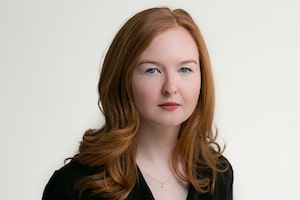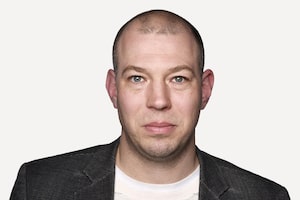The new head of the Ontario Provincial Police is set to testify before a tribunal about his alleged mishandling of a sexual-harassment complaint under his watch at the Toronto Police Service as he takes control of the larger service facing its own reckoning over the treatment of female employees.
In the spring, Ron Taverner is expected to testify before the province’s Human Rights Tribunal about how he handled a junior officer’s concerns about sexual harassment, including allegations he discouraged the complainant from speaking out. The OPP is also before the tribunal, facing its own human rights complaint from dozens of female members who have accused the provincial service of systemic discrimination.
Premier Doug Ford, who is a friend of Supt. Taverner, has described the veteran officer as the right leader for the service, but said he had no part in his selection, which was done by an independent panel and later signed off on by Mr. Ford and his Cabinet. However, The Globe and Mail has confirmed that several years ago, Mr. Ford showed interest in Supt. Taverner’s career advancement. Alok Mukherjee, who chaired the Toronto Police Services Board for a decade before he stepped down in 2015, recalled that Mr. Ford – who was a city councillor at the time – suggested he promote Supt. Taverner to deputy chief. Supt. Taverner did not apply for the role and did not get the job.
The province has released few details about the selection process for the OPP commissioner position. It’s not known if Supt. Taverner’s alleged role in the sexual harassment case before the Human Rights Tribunal was factored into the panel’s decision. The Premier’s office did not respond to a request for comment on Wednesday.
Supt. Taverner did not respond to interview requests. Both the Toronto Police Service and the Toronto Police Services Board also declined to comment on the sexual harassment allegations, citing the ongoing proceedings. TPS has previously denied the allegations, arguing the case was properly investigated and dealt with by management, including Supt. Taverner, the professional standards unit, and the province’s Special Investigations Unit.
The complaint was filed in 2014 by TPS Constable Heather McWilliam, who alleges that she was subjected to a toxic work environment and relentless sexual harassment from colleagues at 23 Division, which Supt. Taverner headed.
Though Supt. Taverner is not named in the application, Ms. McWilliam’s lawyer Kate Hughes said that he is “very much a part of this case.” One of the issues at play is whether Supt. Taverner discouraged Ms. McWilliam from bringing her allegations forward.
In December, 2012, according to the application, she went to him to advise him she would be filing a sexual harassment complaint. She said she told Supt. Taverner that she would not return to work until that officer, Staff Sgt. Chris Nolan, was transferred out of the division,which he was. The officer later pleaded guilty to a Police Services Act charge of discreditable conduct, and was docked 20 days’ pay. After Ms. McWilliam returned to work, she alleges in her application that Supt. Taverner told her she needed to “have a tough skin.”
“He then reminded me of the picture in his office that says, ‘Loose lips sink ships,’” the application reads. She alleges that in the months that followed, Supt. Taverner tried to “punish” her by hindering her opportunities within the service.
Ms. McWilliam has been on medical leave since 2014.
The OPP is also facing a gender-based discrimination complaint at the Human Rights Tribunal of Ontario, in which hearings are currently underway. The applicants allege that civilian employees – who are predominantly women – face “systemic discrimination” and that they have been underpaid compared to uniformed officers (who are mostly male) who are doing the same or similar jobs. The case goes well beyond pay, claiming the women are also subjected to fewer benefits, training opportunities and chances of promotion and that they face wide-ranging sexism.
In testimony on Wednesday, Amanda Weaver, one of the applicants who works in human resources, described an environment where women are frequently the targets of inappropriate comments. She said she has seen about five to 10 reported cases per year of the “c-word” being used in the workplace.
She said people still fear that if they report issues, they are committing “career suicide” or will be seen as a rat.
Supt. Taverner, 72, will take over his new role in mid-December. He has a long friendship with Mr. Ford. They have both been involved in a North Etobicoke charity called Trust 15 that works with at-risk youth. In the summers of 2016 and 2017, Supt. Taverner travelled with participants to Mr. Ford’s cottage, north of Toronto, for “Ford Fest Camp Day."
Although Mr. Ford has acknowledged being close with Supt. Taverner and supporting his appointment, he has denied exerting any influence on the selection committee.
About five years ago Mr. Mukherjee recalled that when he was still police services board chair Mr. Ford urged him – in Supt. Taverner’s presence at a private meeting – to promote Supt. Taverner to the rank of deputy chief.
“He would be great at it,” Mr. Mukherjee recalled Mr. Ford saying.
“I was taken aback by how direct his suggestion was,” Mr. Mukherjee said. “Ron was basically visibly upset and uneasy.”
The deputy chief position was eventually awarded to Mark Saunders, now the Toronto police chief. Former police chief Bill Blair, now the federal minister of border security and organized crime reduction, declined to comment on Mr. Ford’s alleged request.
Ontario interim Liberal leader John Fraser said Wednesday that the separation between politicians and police is essential to a democracy.
“Any time there’s influence in policing, whether it’s in the daily activities of police or for promoting somebody from a politician, we should all be worried."
With a file from Daniel Leblanc
 Molly Hayes
Molly Hayes Tavia Grant
Tavia Grant Laura Stone
Laura Stone Greg McArthur
Greg McArthur Colin Freeze
Colin Freeze